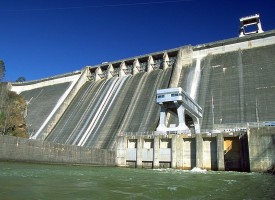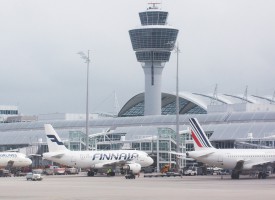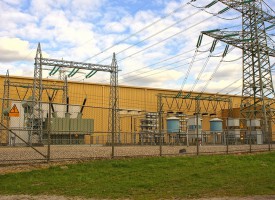Infrastructure Managers and Regulated companies
Infrastructures are large scale collective goods whose proper functioning is required for the success of numerous economic activities. They are thus key for the competitiveness of regional economies.
Their overall cost is very high, it is a major part of a country’s investment, and they are also crucial for the functioning of a number of collective uses, a number of which consist in public services, which requires in any case strong regulation.
Before decision is taken to develop new infrastructures, a medium and long-term prospective work is required, mobilizing numerous areas of expertise (economic, technical, environmental, financial, and legal).
Their operation is performed through complex partnership systems (regulator, conceding authority, concessionary company, joint operators…) and raises issues of value creation and sharing, and of regulation. Misappropriation of revenue (through disproportionate margins or economic inefficiency) or on the opposite insufficient investment can send inadequate price signals to the various economic sectors, thus strongly affecting performances, preventing competition between actors at the national level, and putting a burden on public budgets. Talks on modernization of the railway sector, the evolution of ERDF (France’s electricity distributor), pricing of railway and highway tolls and tomorrow the financial balance of new railway concessions illustrate the specific challenges these operators all face.
In recent years, a number of changes have taken place in this domain:
- Development of new networks: telecommunications, high speed rail, and tomorrow, smart grids.
- An urging need for the renewal of infrastructures that were massively developed between 1945 and the seventies, in a completely different economic context.
- An increased scrutiny by public authorities at all levels, above all under EU regulatory supervision.
- The development of trans-European networks (electricity, railways, ship-canals, open sky).
- Successive transfers of responsibilities to the local level (ports, airports, use of rail infrastructure).
- The rise of new funding schemes in order to address the fall of State level involvement.
- Free choice given to public authorities when it comes to choosing the adequate operator for organizing and operating public services, not to be confused with the transformation of public services into private, market-oriented, services (railways, open access, telephone market, etc.).
- Strengthening of public consultation procedures associating the general public, and of financial compensations.
Our intervention and our assets:
This domain has always been at the core of MENSIA Conseil’s expertise.
Our intervention ranges from prospective strategic studies (5 year strategic projects, corporate plans, business plans, asset management, performance contract) to public consultation procedures, also including opportunity studies, fare policy, project evaluation, negotiation between stakeholders, etc.
Our most distinctive contribution is to provide to our customers an integrated vision of the challenges they face. We take advantage of the numerous interventions we have made for infrastructure managers, public authorities, and operators. Adopting a comprehensive scope is essential in complex decision making environments, in order to go beyond the analyses provided by specialized areas of expertise (engineering, environmental, financial and legal studies).
The experience we have accumulated in the infrastructure and transport sectors allows us to address specifically and in a much detailed way the challenges regulated industrial and services activities face. MENSIA Conseil has been working with major economic actors as activities that were initially under regulation became gradually open to market competition (rail freight, electricity production and distribution); for private companies performing activities under public service delegation contracts; and more generally in sectors currently experiencing regulatory changes; for companies that are in strong interaction with their regional ecosystem or in which public shareholders are involved.
Our clients:
- State-level administrations: Department for Inland and Maritime Transports and Infrastructure, Department for Civil Aviation.
- Port authorities.
- RFF, RTE, Eurotunnel, airports, highway operators.
- Europorte, Total, STX (naval construction and maritime energies), CMA CGM (Terminal Link), Veolia Water and Environment.



